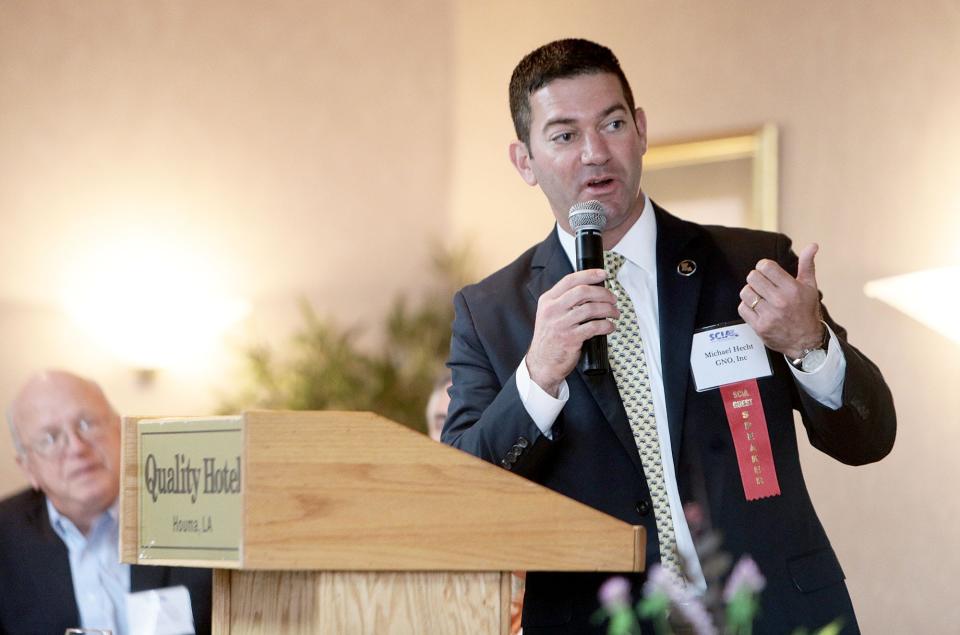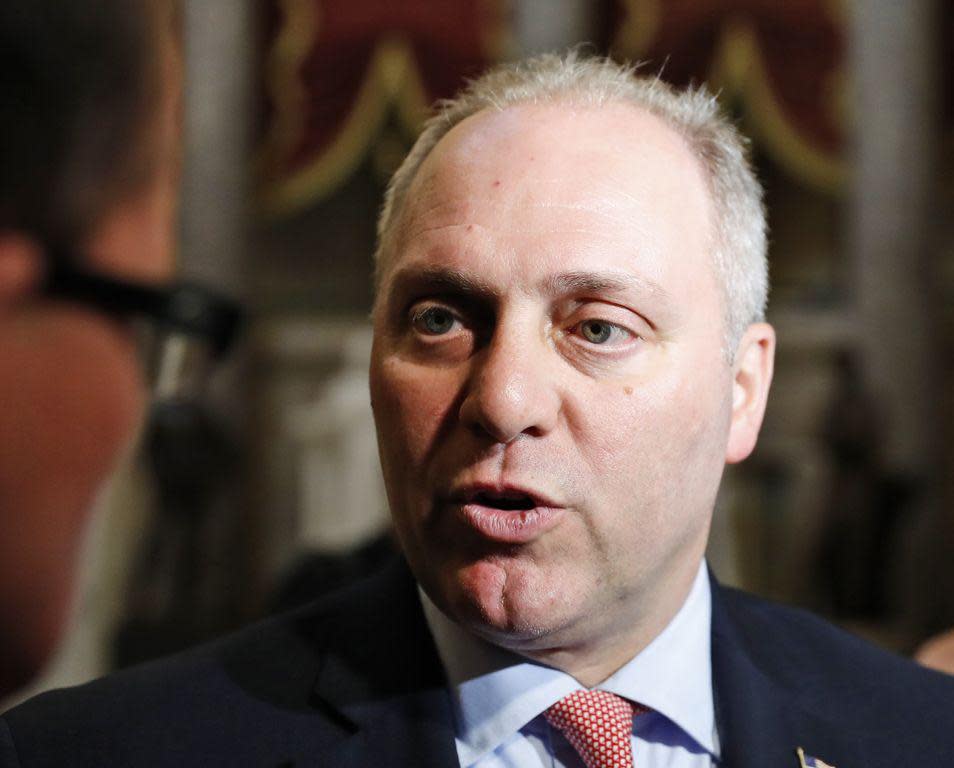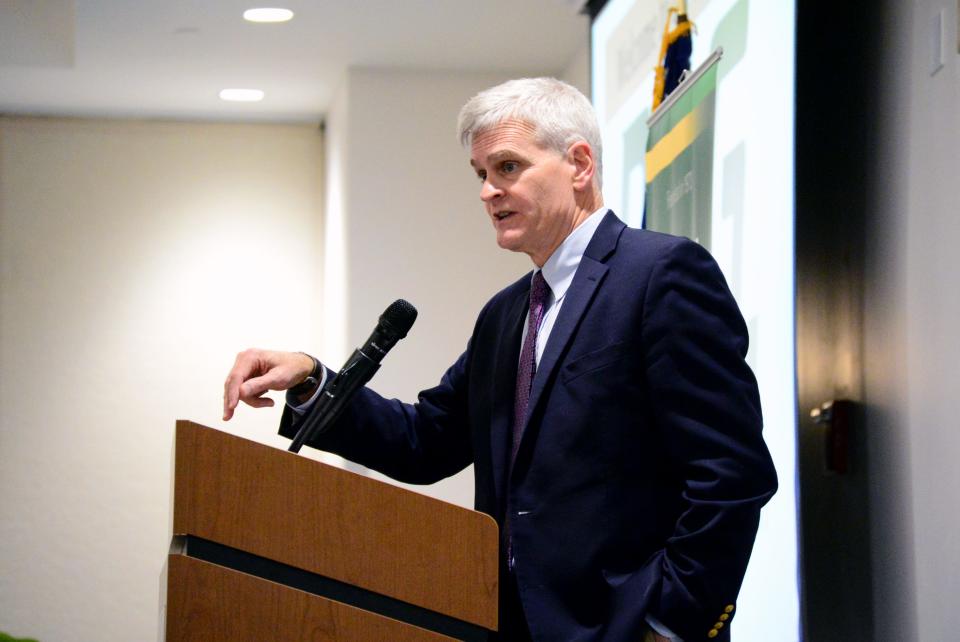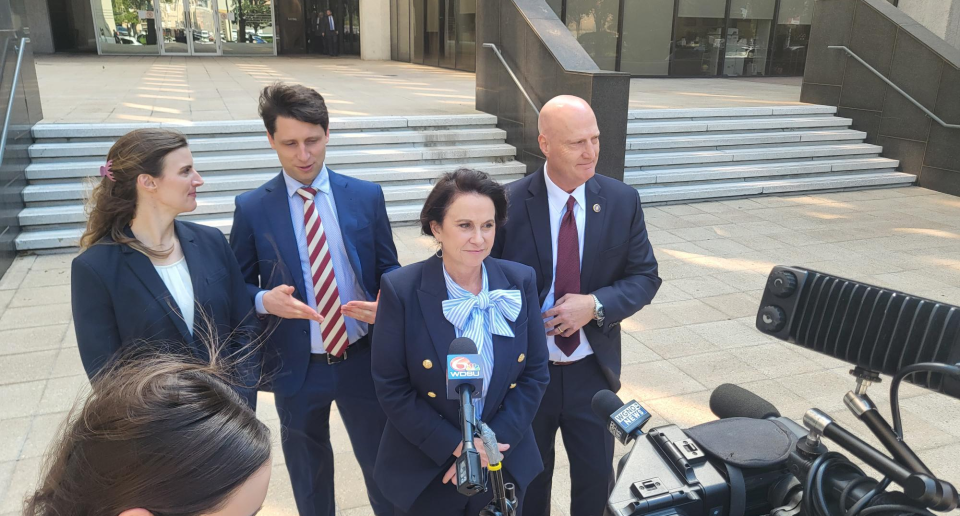Senate committee hears about rising flood insurance prices under FEMA's Risk Rating 2.0
Concerns about rising flood insurance prices have reached Capitol Hill.
The Senate Committee on Banking, Housing and Urban Affairs heard testimony from leaders from three states about how the Federal Emergency Management Agency's changes to the National Flood Insurance Program are affecting their areas. The changes are known as Risk Rating 2.0.
Under the new Risk Rating 2.0, FEMA said its goal is equity and to ensure that rates are based on individual risks. Terrebonne and Lafourche are some of the hardest hit by these changes, seeing their final average total premiums increase to three times as much. Greater New Orleans Inc. President Michael Hecht was the only Louisianan giving testimony.

"There's some dramatic impacts I would like to talk about," Hecht said. "On average, under Risk Rating 2.0, an average NFIP policy will be $1,808, which is a 104% increase over legacy rates and rates will increase over 50% in 41 states. This is a major concern about the affordability.
"Congress did not cause the Risk Rating 2.0 problem, but has the ability to impact them and to make them better."

More than 12,000 Lafourche Parish policyholders saw an increase in their rates from $1-$100, while 350 saw a decrease. Terrebonne Parish had more than 14,500 policyholders see a similar increase, while 590 saw a decrease. These increases will be a slow burn, limited by law to 17.9% a year. The average total increase to Lafourche will be 321%, and for Terrebonne, 305%. The hardest hit parish is Plaquemines, which will see a 545% increase.
The first member of the committee to speak on the issue was Sen. John Kennedy, R-La, who said the National Flood Insurance Program needed to be reworked. The old model before Risk Rating 2.0 was flawed, but the new model is worse, he said.
According to Kennedy, the creators of the flood models make claims about its abilities that don't match reality, all while premiums continue to rise, making them unaffordable.
"The whole purpose of the National Flood Insurance Program is to provide a product that people can afford," Kennedy said. "This is just an excuse to raise premiums, and they don't care."
FEMA has been under criticism for its lack of transparency about how it created these new models. The agency contracted the modelmaking out to Milliman Inc., and they created an algorithm that determines flood risks. Local officials say the data is incorrect, and they point to levee data they say proves their point.
When asked, FEMA provides the final data it uses to create the models, but officials like North Lafourche Levee District Director Dwayne Bourgeois say that's not the numbers they are seeking. He said the real question is how FEMA arrives at those numbers, and that has not been answered.

House Majority Leader Steve Scalise, R-La, and the House Committee on Oversight and Accountability have sent a letter demanding these answers and said it was the last time they would ask nicely. The committee even placed a deadline on their demands of Sept. 25, 2023. That deadline has passed, and more aggressive questioning has not happened.
According to congressional staff, the demand was made because FEMA had begun to drag its feet in communications with the committee. Since the letter was sent out communications have picked back up, but local officials like Bourgeois say the question is not being answered.
Potential Fix

Sen. Bill Cassidy, R-La, has proposed a bill, the National Flood Insurance Program Reauthorization and Reform Act of 2023, which seeks to reform portions of the flood insurance program. These reforms include reducing the annual price increase and creating oversight into how policies are handled. It also adds more oversight into how insurers write policies for customers.
It is supported by bipartisan cosponsors: Senators Cory Booker, D-NJ; John Kennedy, R-LA; Chris Van Hollen, D-MD; Cindy Hyde-Smith, R-MS; Kristen Gillibrand, D-NY; Roger Wicker, R-MS; and Marco Rubio, R-FL.
Cassidy maintains that the program needs reforms, and cites the Nonpartisan Congressional Budget Office, which estimates that roughly 900,000 policy holders will drop out of the program in the next 10 years because of Risk Rating 2.0 mapping. He also claims FEMA had an internal study that concluded 20% of all policyholders would drop out because of the rising premiums, and as proof points to a letter where he says FEMA acknowledges the study.
Terrebonne has adopted the new maps, but Lafourche's maps are still being appealed.
Lawsuit

Risk Rating 2.0 also faces litigation as 10 states, 43 parishes, 12 levee boards and more banded together last year to sue FEMA over the implementation of Risk Rating 2.0.
Louisiana Attorney General Liz Murrill, who was then Solicitor General, filed a preliminary injunction to halt the rollout of the program until the lawsuit played out. She argued it was causing irreparable damage to Louisiana.
Representatives for FEMA argued that they did not have to provide affordable flood insurance rates, and that irreparable damage had not been proven. U.S. District Court Judge Darrel J. Papillion has not yet ruled on the injunction.
This article originally appeared on The Courier: Senators hears testimony about FEMA's rising flood insurance prices

